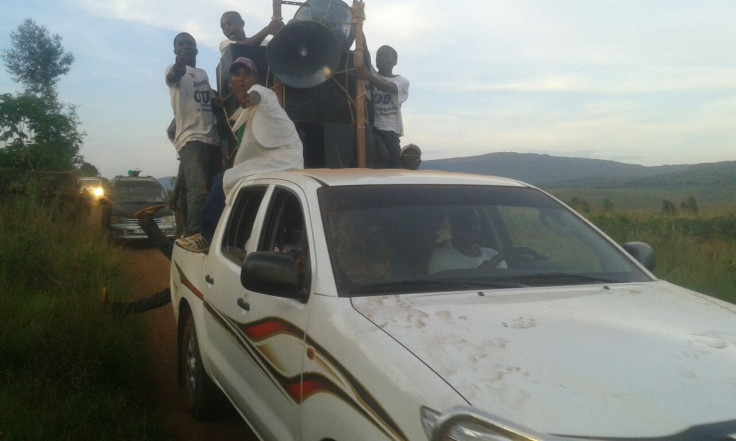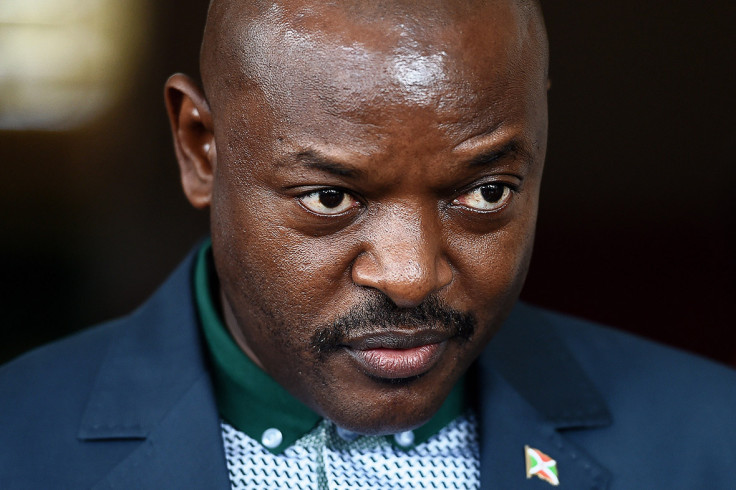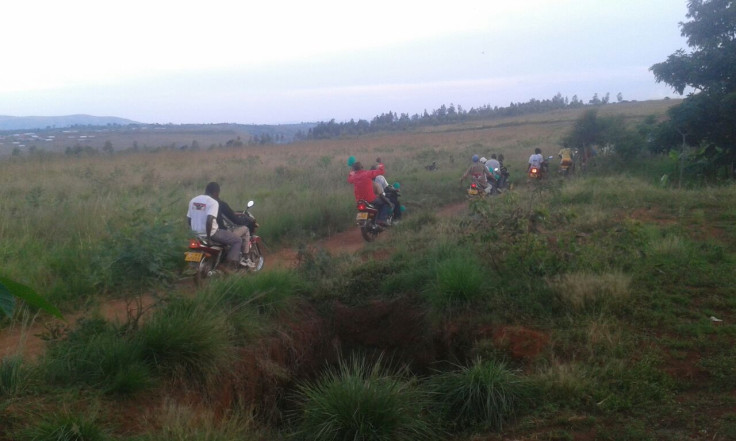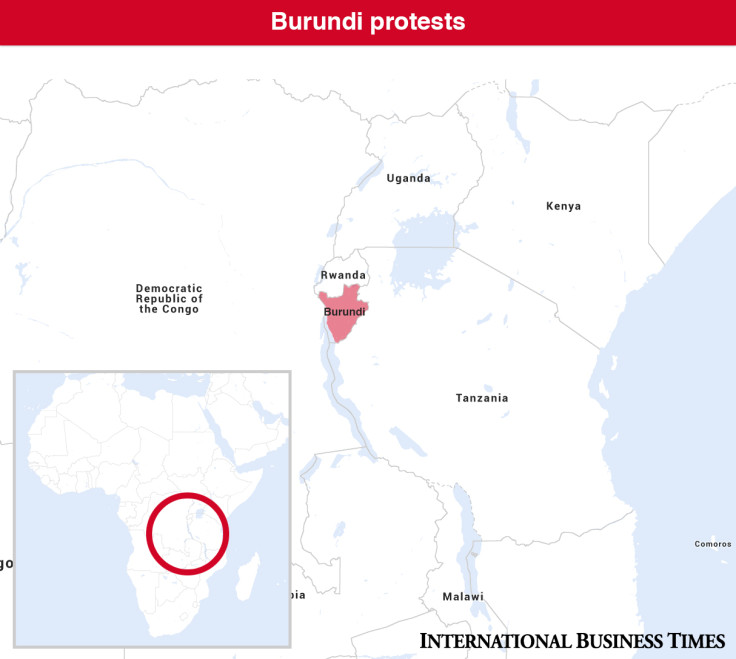Burundi: Opposition calls for UN help to disarm youth militias

Burundi's main coalition opposition party has told IBTimes UK it will call on the United Nations to set up a special budget to help the country disarm youth groups, including members of the ruling party National Council for the Defense of Democracy (CNDD-FDD)'s Imbonerakure youth wing.
During a crisis meeting on Sunday (31 May), leaders of the East African Community (EAC) called on the government in Bujumbura to postpone elections by no less than six weeks after more than a month of sometimes deadly protests.
In its recommendations, leaders demanded that "all parties stop violence and exercise restraint during this period", and ruled for an "urgent disarmament of all armed youth groups allied to political parties".
Government to "punish" armed youth
Willy Nyamitwe, the presidential adviser, told IBTimes UK the government would act on the recommendation to disarm "every young person without taking into account their political affiliation".
"This foul play must stop and the government must disarm every youth. A criminal is a criminal and should be punished""
- Willy Nyamitwe
Nyamitwe said he believes many young people allied to other political parties hide behind the Imbonerakure label – which has been accused of being behind a campaign of intimidation that has led to the flight of over 72,000 Burundians to bordering countries – when they commit crime.
"The Imbonerakure is the young wing of our party, and have, for a long time, been accused of having arms. The fact is that we have arrested young people who have thrown grenades during protests: yes some young people have arms, but these all belong to different political formations, not necessarily to the CNDD-FDD, or working for the government," the adviser said.
"People in the opposition want them to take all the blame. This foul play must stop and the government must disarm every youth. A criminal is a criminal and should be punished."
Many Imbonerakure members are former rebel combatants from Burundi's civil war which took place between 1993 and 2005.
More than 100,000 arms have been removed from civilians, Nyamitwe said, adding that the government would continue a disarmament and demobilisation program established in 2005 at the end of the war that killed some 300,000.
"It is in this framework that the government will re-enforce its disarmament program," Nyamitwe said.

UN budget for disarmament
However according to Leonce Ngendakumana, president of the main coalition opposition party the Democrats' Alliance for Change (ADC-Ikibiri), the EAC recommendation failed to name the pro-President Pierre Nkurunziza militia, which he alleges is armed by the government.
"The EAC cannot ask the Burundian government to disarm the militia because the ruling party is arming them. Therefore, we will refuse the EAC recommendation to the government, but we will send a quantified request to the UN as disarming those groups will require huge material means," Ngendakumana told IBTimes UK on Tuesday.
The politician claims that such a request would fall within the EAC framework, which has a regional peace and security article including a clause that states the region may send a peacekeeping force to combat an issue that could create instability.
The call follows over a month of street violence, which has left more than 30 people dead and over 500 injured since 26 April when Burundi's ruling party nominated Nkurunziza to stand for re-election.
"The EAC will definitely support us because if they leave us, they will have to mobilise enormous funds to dig out bodies and to rebuild a completely destroyed country," Ngendakumana, a former president of the assembly, warned.
"To prevent all this it must be put at the disposal of the government and the opposition the means to neutralise and dismantle the militias such as the Imbonerakure and engage in a path of peace and security for the country."
International backup force
Jean Claude Nkundwa, a Bujumbura-based peace activist, however, recommends that the Burundian army receives an "international backup force" to allow it to play a constructive role in the disarmament of the militias.
But since senior army leadership is likely to be divided, he said, the UN allied with the African Union "must prepare to directly intervene as quickly as possible".
The issue at hand, Nkundwa explained, is that the EAC failed to propose the setup of an institution to overlook the disarmament of a divided group.

"It is also important to underline that when we speak about Imbonerakure, we are speaking about different categories. You have those who don't want to participate in violent activities, those who are rebelling against the group, and maybe those who feel they have been taken hostage by the more extremists members," he told IBTimes UK.
Referring to allegations that the government has been arming youth groups, Pancrace Cimpaye, a spokesman for ADC-Ikibiri, said Nkurunziza would not accept "getting rid of his force".
He said only "an economic embargo pressure would have a sufficient impact" in the disarmament.
A legal route?
Burundi's civil society lawyer, Belgian attorney Bernard Maingain, believes the EAC recommendations "could be enough, judicially speaking", to ensure Nkurunziza's government disarms every youth group.

"From a legal point of view, these recommendations have introduced important things, including the disarming of the Imbonerakure," said Maingain, who handed a case on 8 May to the UN Security Council allegedly describing a plan to destabilise the region by sending members of the Imbonerakure to train in the Democratic Republic of Congo.
"There is a lack of precision in the text, but I think that it basically intends to tackle the Imbonerakure – it seems so obvious to me. I think the way in which we will be able to change things at that level will be a major issue now," he added.
"It will help to gauge the goodwill of the authorities at the dawn of both the disarmament and fundamental freedom issues."
Opposition leaders want Nkurunziza to withdraw his third-term bid in the upcoming 26 June elections, claiming it violates the country's constitution and the Arusha Accords, a peace deal that ended the ethnic civil war in 2005.
Nkurunziza's supporters, however, argue that the president's first term should be discounted as he was chosen by the Parliament and not by the people in an election as is specified in the agreement.
© Copyright IBTimes 2025. All rights reserved.






















